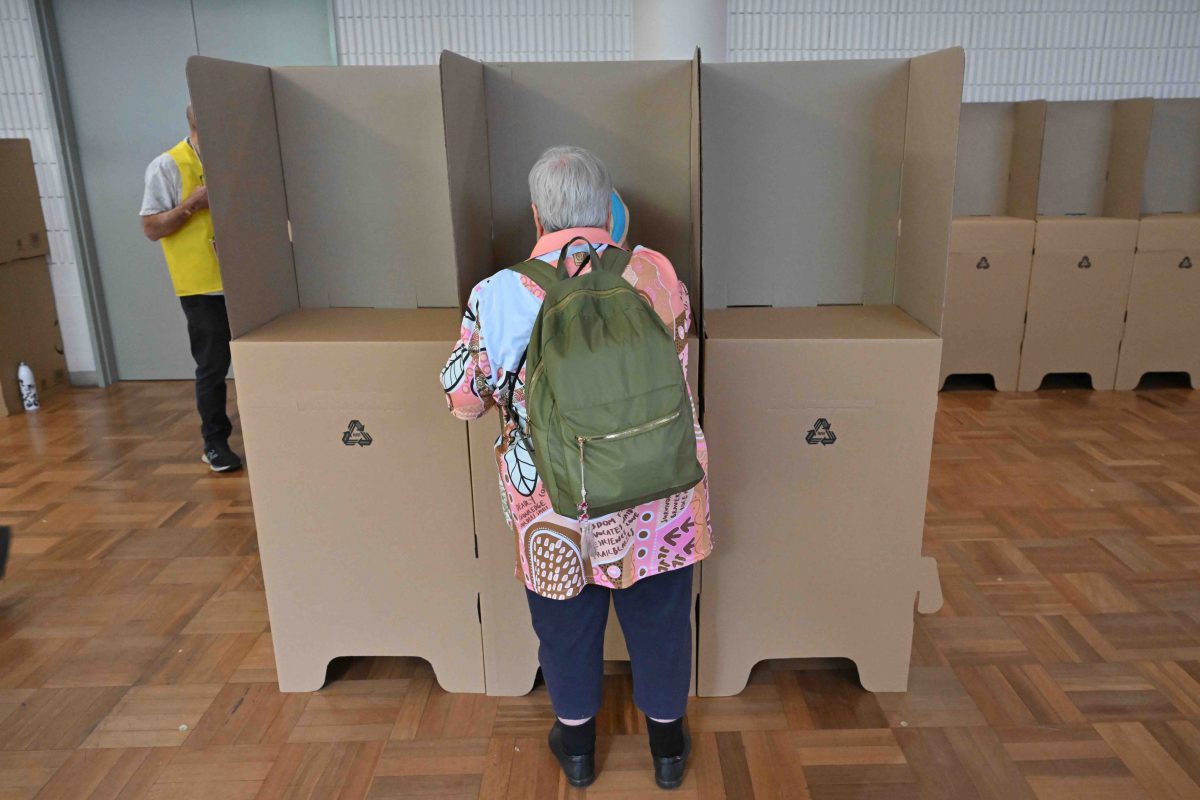Hitting the old mute button on the noisy circus
With the Voice referendum debate reaching its final stages, Matthew Abraham has found a way through the fog of misinformation and ageism.


Photo: Pexels/Eric Mclean
The list of the top 10 inventions that changed the modern world has one glaring omission.
No argument about the invention sitting at the top of Britannica’s list – stone-age tools.
And little to quibble about most of the encyclopedia’s other picks, including the first successful photograph, the daguerreotype, invented in the 1830s, celluloid as the first plastic, the Wright flyer, the integrated circuit and the Apple II personal computer.
But the list doesn’t make room for possibly the world’s greatest invention – the TV remote control.
And what makes the remote that controls our idiot’s lanterns so special? The mute button.
The mute button remains a rolled-gold God-send, killing noisy advertisements stone dead.
It’s little wonder that most social media platforms, like Twitter or Facebook, have a version of the mute button, to shoosh the permanently annoyed and annoying.
Used judiciously, it silences the din of the madding social media crowd who decide that cheap insults or dumb quips are a clever way of contributing to our personal happiness.
During the week, I retweeted a happy selfie posted by former federal Liberal MP for Boothby, Nicolle Flint, knee-deep in a healthy mob of spring lambs.
It took a nanosecond for someone to reply: “A visual representation of 90 percent of her twitter followers?”
According to the online bio, this individual works for a company in rural South Australia.
Perhaps he should ask his customers whether they’d follow Ms Flint and if so, would they consider themselves sheep? It might be a learning experience.
Ms Flint, now working the family farm in the south-east, is contemplating a return to politics, contesting the state seat of MacKillop in her backyard, now held by Liberal defector Nick McBride. She’ll romp it in if she runs in 2026.
Anyway, this bloke is muted, for now.
The Australian Electoral Commission staff don’t ask why you are voting early, just whether you meet the criteria for a pre-poll ballot. It saves a lot of fibs.
At precisely 2.14pm on Tuesday, I hit a mute button of a very different kind. I voted early in the voice referendum.
It was the first day of pre-poll voting for Prime Minister Anthony Albanese’s referendum seeking to change the Australian Constitution to recognise Aboriginal Australians and establish an indigenous voice to parliament and the public service.
The referendum will be held on Saturday October 14. But stuff that. I wanted to mute the increasingly shouty referendum voices bouncing around inside my scone.
So, along with a steady stream of fellow citizens, I filed into the Baptist Church on Glen Osmond Road at Myrtle Bank, to vote.
Officially, to vote early you need to meet certain conditions, including being more than eight kilometres from a polling place on the big day, are travelling, pregnant, seriously ill or infirm, or my personal favourite, you’re “in prison serving a sentence of less than three years or otherwise detained”.
The Australian Electoral Commission staff don’t ask why you are voting early, just whether you meet the criteria for a pre-poll ballot. It saves a lot of fibs.
Clutching a ballot paper and armed with an IKEA-sized pencil, it’s into the wobbly brown cardboard booths to vote.
A tick counts as a yes while a cross doesn’t count as a no. A yeah-nah doesn’t count at all. It’s not hard, folks. If you want to vote yes, write Yes in the box. For a no vote, write No.
The Yes and No volunteers outside the church had politely offered leaflets. But who needs a how-to-vote card for a vote of just Yes or No?
If you haven’t made your mind up yet, and you’re hoping for some divine guidance over the next week before you must vote, good luck.
The moment I tucked my folded ballot paper into the slot at the top of the ballot box, it was like hitting the big red mute button on the whole crazy circus. It felt great.
As a scribe, however, it is my solemn duty to continue to track this as an election campaign, because that is what it has been from day one.

A voter marks her ballot paper during early voting for the Indigenous Voice to Parliament referendum. Photo: AAP/Mick Tsikas
We’re supposed to be having a “conversation” and a “debate” about the merits or downsides of concreting an Indigenous voice into the constitution.
Instead, we’ve ended up with an ugly constitutional version of jelly wrestling.
With barely a week to go, the contest has sunk into the fog of war stage of an election campaign.
The German phrase Sturm und Drang – literally meaning storm and stress – perfectly nails the campaign’s emotional turmoil.
Even the AEC, one of the few truly professional government agencies, has had to defend itself from online attacks claiming it is deviously manipulating the ballot to deliver the Yes result PM Albanese so desperately desires.
It didn’t help itself when on Tuesday it tweeted: “If someone votes at two different polling places within their electorate, and places their formal vote in the ballot box at each polling place, their vote is counted”.
It spent the rest of the day clarifying that it had processes in place to minimise rorting and that “multiple voting is an offence”.
“Real-time roll mark off occurs at all pre-poll centres & many polling day booths,” it explained. “All declaration votes are also subject to strict roll checks. Multiple marks against hardcopy lists are identified every event & very rare.”
Just 0.03 per cent of votes at the 2019 federal election were “multiple mark-offs” – the average is estimated to be just over 0.01 per cent – and the AEC says they have “never in Australia’s history of federal elections and referendums been larger than the margin in a contest”.
But the online hares were running.
One clown posted a photo of his completed ballot paper with a No in the box and his full name, to prevent anyone lodging a double vote against his name.
But under long-established federal electoral laws, doing anything to identify yourself on a ballot paper makes your vote informal. Instead of counting once, or twice, his vote won’t count at all.
It’ll end up in the bin.
We, of course, all know that Rupert will live forever.
Perhaps the wildest theory gaining credence in the increasingly worried Yes camp is that older people shouldn’t be allowed a vote on this issue because they won’t live long enough to see the damage their No votes will do to the nation.
All major opinion polls show the older demographic will possibly torpedo the voice.
Last weekend Sunday Mail columnist and wine critic Nick Ryan ran this up the wacky flagpole, arguing “it seems strange that we exclude the informed and educated teenager who will live with the consequences but enfranchise the understandably conservative nonagenarian who won’t”.
He said any change that requires a successful referendum “is one that starts its journey at the bottom of the hill”.
“It’s not a trek made with a dodgy hip, two bad knees and a walking frame,” he wrote.
He could be describing his newspaper’s nonagenarian owner, the 92-year-old Rupert Murdoch, although he seems fit and feisty.
Rupert’s critics believe his organisation’s newspaper and TV outlets grievously damaged democracy in the US after the presidential defeat of Donald Trump and that he won’t have to live with the consequences.
We, of course, all know that Rupert will live forever.
Let’s get this theory straight. While we are urged to listen to the wisdom of Aboriginal elders, our white elderly should be silenced.
And to give one part of the community a voice, we need to hit the mute button on another part of our community.
And yet this ageist tripe gets a standing ovation from the true believers.
Speaking of ageing, another invention that should have made Britannia’s top 10 inventions is almost as simple as the stone axe – reading glasses.
Why?
They stopped the young from running the world and making a spectacle of themselves.
Matthew Abraham is InDaily’s political columnist. Matthew can be found on Twitter as @kevcorduroy. It’s a long story.




